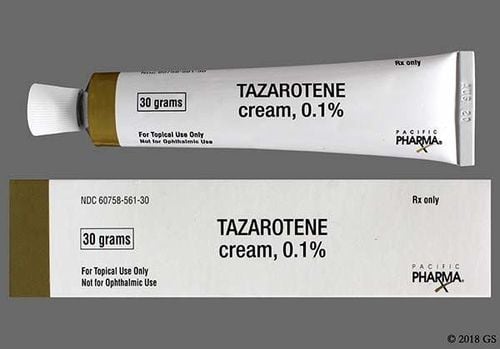This is an automatically translated article.
Celery is a food widely used in the daily diet of many people. When consumed in moderation, this vegetable not only provides essential nutrients to the body, but also offers many impressive health benefits. So what are the benefits of eating celery?
1. Overview of celery vegetables
Celery is a vegetable that can be eaten raw or cooked. Some people use celery extract to apply to the skin to help repel mosquitoes. In addition, people also drink celery juice to treat conditions such as prediabetes or rheumatoid arthritis.
Celery has long been considered an effective diet food because of its low calorie content. In addition, celery also brings many outstanding health benefits. Here are five reasons you should consider adding celery to your diet.
2. 5 great uses of celery
Is eating celery good and eating celery has any effect? With an abundant nutritional composition, celery gives your body the following benefits:2.1. Add antioxidants to the body
Antioxidants work to protect blood vessels, cells and organs in the body from damage caused by oxidation.
In celery vegetables contain a lot of vitamin C, flavonoids and beta carotene. Research shows that this vegetable also provides at least 12 additional antioxidants with just one stem. In addition, it is also a good source of healthy plant compounds, which effectively reduce inflammation in the digestive tract, cells, blood vessels and other organs of the body.

Trong rau cần tây chứa nhiều vitamin C
2.2. Eating celery helps reduce inflammation
Chronic inflammation is linked to many diseases, including osteoporosis and arthritis. Celery and celery seeds contain about 25 anti-inflammatory compounds, which help protect against inflammation in the body.
2.3. Digestive system support
The antioxidants and anti-inflammatory substances in celery help protect the entire digestive tract and are especially beneficial for your stomach.
The pectin-based polysaccharides in celery, including a compound called apium, have been shown to reduce cases of gastric ulcers, regulate gastric secretion, and improve gastric mucosa.
Besides, the water content in celery is up to 95% along with a large amount of soluble and insoluble fiber. This helps to support a healthy digestive tract and keep organs functioning properly. It is estimated that one cup of celery juice provides about 5 grams of fiber.

Rau cần tây giúp hỗ trợ hệ tiêu hóa
2.4. Rich in vitamins and minerals with a low glycemic index
You will supplement your body with a large amount of vitamins A, C, K along with minerals such as folate and potassium when eating celery regularly. In addition, it is also low in sodium and on the glycemic index. This makes consuming celery healthier and doesn't affect your blood sugar too much.
2.5. Celery has an alkalizing effect
With minerals like magnesium, sodium and iron, celery has the effect of neutralizing acidic foods when consumed in the body. Furthermore, most of these minerals in celery are essential for bodily functions.
3. Is it safe to eat celery?
Celery extracts and celery seeds are absolutely safe when taken orally along with other foods. However, some people may have allergic reactions when consuming celery, such as skin rashes or anaphylaxis.
Celery extract or gel is POSSIBLY SAFE for most people when applied to the skin. However, some of the following situations should be used with caution when consuming celery or its products, including:
Pregnant women: Celery extract and celery seeds are not considered safe. when used orally during pregnancy. Consuming large amounts of celery can cause uterine contractions and cause miscarriage. Bleeding disorders: Some studies show that eating a lot of celery can increase the risk of bleeding when you have a bleeding disorder. Kidney problems: People with kidney problems should not eat a lot of celery because it can cause inflammation. Low blood pressure: Eating celery can lower your blood pressure levels. However, if your blood pressure is already low, the use of celery can cause blood pressure to drop too low. Surgery: Celery can affect your central nervous system. Some researchers think that combining celery with anesthetics or other drugs used during and after surgery can slow down the central nervous system. Ideally, you should stop using celery at least 2 weeks before a scheduled surgery.

Hạt cần tây an toàn khi sử dụng bằng đường uống
4. Tips to choose and use celery properly
Here are some good tips to help you choose quality fresh celery plants:
Steady stems: You should look for celery plants that have upright, sturdy stems that don't bend. Fresh Leaves: Celery leaves need to be crisp and fresh, ranging in color from light to bright green. Avoid choosing celery plants that have yellow or brown patches on their leaves. Prepare celery: You should cut celery right before cooking, avoid chopping celery a few hours before because it will lose nutrients. Shelf life of celery: You should only eat fresh celery within 5-7 days to ensure you get the maximum of its nutritional benefits. As for celery leaves, you should consume them within 1-2 days after purchasing because they are difficult to preserve for a long time. In addition to providing many health benefits, celery is also a versatile vegetable. You can eat celery raw or cooked. In addition, celery is also used to make dishes such as stir-fries, soups, smoothies or juices.
Please dial HOTLINE for more information or register for an appointment HERE. Download MyVinmec app to make appointments faster and to manage your bookings easily.
Reference sources: healthline.com , webmd.com













